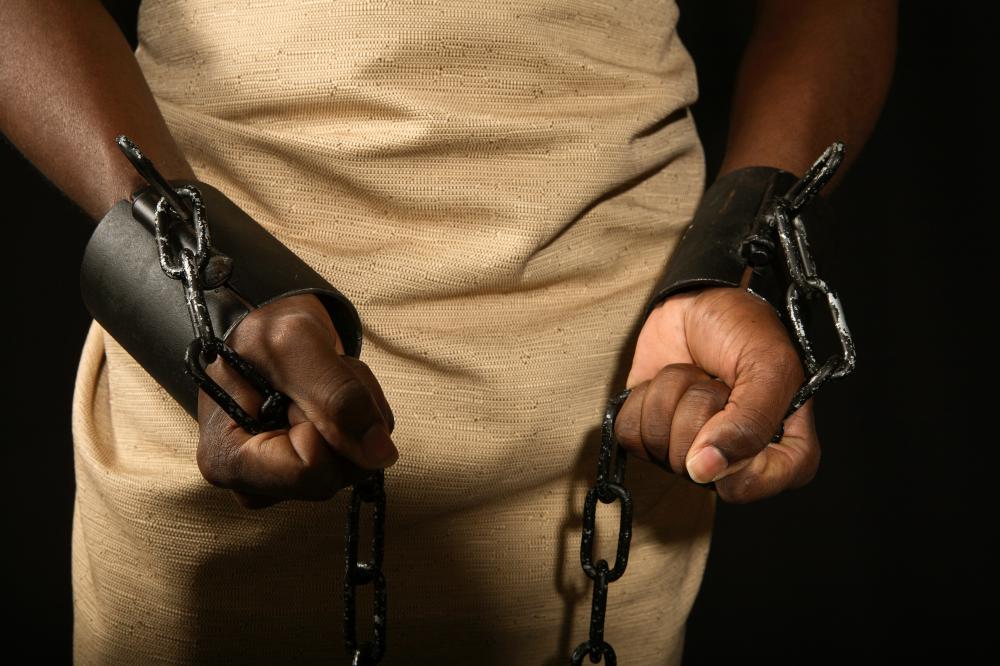At WiseGEEK, we're committed to delivering accurate, trustworthy information. Our expert-authored content is rigorously fact-checked and sourced from credible authorities. Discover how we uphold the highest standards in providing you with reliable knowledge.
What is Manumission?
The term “manumission” is believed to date back to the 15th century. It refers to the voluntarily freeing of slaves. The term is commonly used to refer to such actions when they occurred in the United States (US), but this type of liberation is not limited solely to US history.
Although manumission refers to granting liberty to slaves, a person should not try to use the word as a substitute for emancipation. These two terms, while referring to similar actions, are completely different. In general terms, manumission refers to the voluntary freeing of a slave. Emancipation, however, refers to the release of control, which may or may not be voluntary and the situation does not have to be one of slavery. For example, teenagers can be emancipated from their parents.

In historical terms, the two words still cannot be used synonymously because manumission is voluntary. The Emancipation Proclamation, which is one of the most common uses of the word “emancipation,” refers to the mass ending of slavery in the United States. These actions were not in any way voluntary and before this occurred, slaves were already being manumitted.
While there were instances where slaves were manumitted purely out of goodwill, it was common for there to be conditions or factors that influenced the freeing of slaves. In Jewish history, for example, religious conversion was a ground for manumission. Marriage of a slave to a person of a race that was deemed superior was the basis for freedom in some instances. Throughout history, it has also been found that slaves were commonly liberated immediately before or upon the death of their owners.
Although a manumitted person was given his liberty, in many cases, it was not a cure all. The systems that were in place often created other problems. For example, according to Colonial Williamsburg, a law was passed in 1691 in Virginia to discourage slave owners from manumitting slaves. The law required freed slaves to leave the state, which was then a colony, within six months of being freed. Not only did these individuals have to find a place to go, but their former masters were required to pay for the trip.
In colonial Virginia, the dissent to freeing slaves drove legislators even further. Another law that was passed later prohibited slave owners from manumitting slaves at will. Slaves could only be freed as a reward for public service, Colonial Williamsburg notes, and still this could only be done if a request was made to the governor and he approved it. US history shows that in many instances colonies attempted to interfere with slave owners' abilities to free slaves.
AS FEATURED ON:
AS FEATURED ON:











Discuss this Article
Post your comments